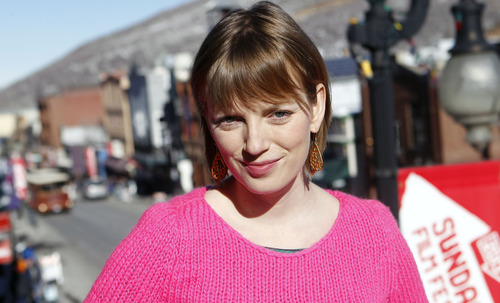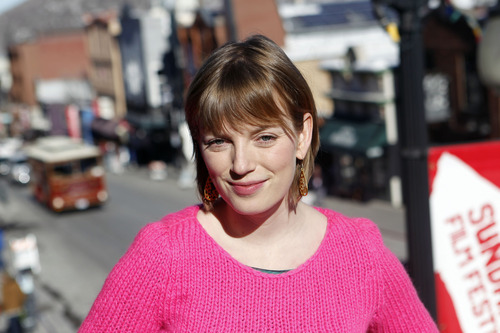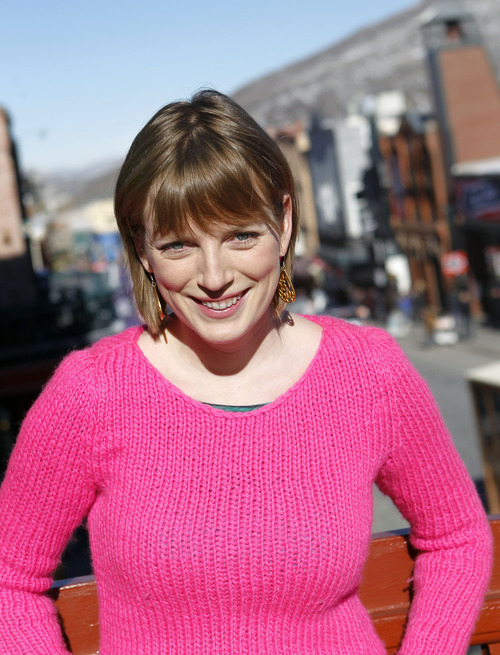This is an archived article that was published on sltrib.com in 2013, and information in the article may be outdated. It is provided only for personal research purposes and may not be reprinted.
Park City • Sarah Polley may be just 34 years old, a mere green sprout alongside most filmmakers, and the actor/director credits the Sundance Film Festival for her rapid rate of artistic growth.
She attended her first Sundance in 1999, when she starred in "Go" and "Guinevere." The next year, at the ripe old age of 20, she returned with her own short film, "The Best Day of My Life."
"Sundance was the first film festival that took me seriously as a filmmaker," she said, sitting down for a short interview at Main Street's Grey Goose Lounge during this year's festival. She credits Trevor Groth, now programming director, and John Cooper, now festival director, for connecting her with other filmmakers and making her feel part of the indie film community.
Polley entertained interviews to promote her documentary, "The Stories We Tell," about her mother's secret affair and the ripples it cause in her family life growing up in Toronto, while her publicist and husband tended the couple's infant daughter.
Polley's documentary premiered at last year's Venice Film Festival, and screened in Sundance's Spotlight category ("a tribute to the cinema we love," as programmers say in the Sundance film guide). Her 2006 adaptation of fellow Canadian Alice Munro's short story, "Away From Her," marked Polley's directorial debut and earned her an Academy Award nomination for Best Adapted Screenplay, which led to last year's "Take This Waltz," with Michelle Williams and Seth Rogan and Sarah Silverman.
In an interview, Polley talked about being Canadian, the personal story of her documentary, and the poison nature of celebrity.
Polley entertained a number of topics and questions:
On directing documentaries vs. feature films • I've always liked documentaries more than fictional narrative films. I can sit through any documentary and it will be educational even if it's terrible, but a bad feature film can make me want to die.
On being Canadian • It's a huge part of my identity and certainly a huge part of my work. There's not as much focus on the individual, there's more a focus on the collective. I think that's just in our makeup, our history and our social programs. What's great about being known in Canada is you're never too well-known. The word 'celebrity' wouldn't even apply to what I am in Canada.
On "Stories We Tell" and the striking moment in the film where she makes her father cry • Not being able to escape your family history for five days a week, 10 hours per day, was an exhausting process that would be claustrophobic for anybody. There were times I wanted to quit, and times when I was never sure why I kept going. … The film's setting of the recording studio allowed me to direct [my father] in a way that shocked me later as being quite callous.
On her latest project • Margaret Atwood's Alias Grace is a novel I'm adapting right now. It was the first film I ever wanted to make. I've spoken to her about it so far in a four-to-five-hour conversation. She's so generous. It's great to ask someone every question you ever wanted to know about one of your favorite books.
On how celebrity status is like poison • How destructive is it to sit for days on end and speak to people only about yourself, and not ask them any questions in return? In terms of promoting a film, I don't mind it at all, but there's something toxic about it. It's no wonder people go off the rails and become hideous and self-involved. It's a kind of brain-washing into becoming a total narcissist. What's awful is that after a day of this, I get used to it. How awful is it that I sit here and display no curiosity about your life, and be totally comfortable with you displaying all this curiosity about mine? I feel a certain sadness, and sense of disease, that we don't analyze the process more.
Twitter: @Artsalt
Facebook.com/fulton.ben







